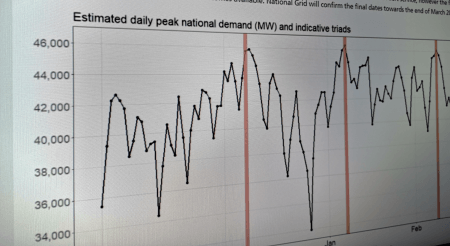
Embedded benefits changes and how they may impact your business
The need to reform network charging so that it’s cost-reflective for all parties is not a new issue.
We’ve seen previous reviews by Ofgem and industry code modifications proposed over the last few years. But more recently the interest has been centred around so called embedded benefits. That is, the benefits that small scale distribution connected generators derive from suppliers paying the net of embedded generation charges such as Transmission Network Use of System (TNUoS). The question is whether this is still appropriate in a market where ‘embedded generation’ is increasing.
Here's our latest view on the changes and how they may impact you.
A level playing field
EDF Energy supports the need for reform, particularly in respect to removing the unfair advantage embedded generators would potentially have within the Capacity Market and has recently raised modifications.
These embedded benefits are being paid by customers and Ofgem estimate that reform of these arrangements will save customers some £7bn by 2030 as the same amount of revenue recovered by these charges will be spread over a greater volume of supply. It’s our view that charging mechanisms need to better reflect the cost to all generators and to maintain a level playing field between transmission and distribution connected generation.
Changes to charging regime
Ofgem and BEIS have signalled a clear intent to review and reform the charging regime and three clear actions are already underway:
- Residual charges: Ofgem announced on 20 June that it will reduce the embedded benefits received through the residual charges levied within TNUoS (a variant on our suggested modification). This will see the benefits potentially reduce from a current of £45/kW to a now estimated range of between £3/kW to £7/kW, the cost of avoiding further investment at the grid supply point. Ofgem’s preferred approach is to phase in the reduction over two years to 2020.
- Capacity Market: BEIS have confirmed they will charge suppliers the cost of the Capacity Market (CM) scheme (the supplier obligation) on a gross volume rather than net of any embedded generation volume, therefore avoiding an unfair advantage to small-scale generators bidding into the CM in future. This change will take effect in 2018.
- Targeted Charging Review: The third action is potentially more far reaching. Ofgem consulted on the possible scope of a Targeted Charging Review (TCR) to look at wider implications of reforming the residual charges and the associated embedded benefits. The consultation closed on 5 May.Ofgem are considering the responses before making a final decision on the form and approach of the TCR including timescales. If launched, such a review could take up to two years to complete. The TCR will focus mainly on the residual charges which in theory are top-up charges set to ensure that total allowed network revenues are recovered but in reality make up the substantial element of the charges.
The review will start to look at whether ‘behind the meter’ generation, i.e those not connected to the distribution network such as solar PV panels on roofs, should also continue to receive any benefit from the network charging regime.
Battery storage
Ofgem have set out changes it wants to see to remove a perceived disadvantage to battery storage.(This is separate to the review but included in the consultation on its scope). Ofgem is proposing that storage should be treated as generation when setting all residual charges, and so should not pay demand residual charges for either transmission or distribution, as well as consulting on two ways of reducing Balancing Services Use of System (BSUoS) costs for these types of storage.
Looking ahead
What is clear is that the nature of embedded benefits is changing and will significantly reduce going forward. The wider question is how far will Ofgem be prepared to go to reform network charging regime as a whole?
Here's how to stay up to date with updates on this and other regulatory and price changes:
Sign up for our Talk Power mailing list to receive news on our upcoming Talk Power events and blogs.
Sign up to Market Insight to read Monitor - our quarterly forecast on NEC costs and regulation
Sources
Post a comment
Related articles

What the Energy Bills Discount Scheme means for businesses

